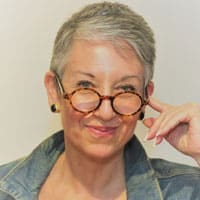
Since 1987, when I first arrived at the office after completing my stockbroker training, I have built a practice of working with women. Family circumstances initially steered my choice. I was responding to having lost three men in four months and having three widows left behind; somehow the notion of helping to educate women regarding their finances felt like a natural fit. It was through this sad fate of multiple family catastrophes that my 4-part course, “Women and Their Money,” was born.
Many of the women who came to my programs were older. Some were divorced and some were widowed. I was young and so very sure of my knowledge and ability, and the women loved learning and being part of my programs; over the years some even sought me out to tell me of their successes. Those were very heady times for a young advisor.
Fast forward to 2022. I am now the age of many of those women I taught in my course so long ago. I am different in some ways from the young woman I was then; the woman I am today carries the confidence of business successes and recognition. Mostly though, I carry the confidence borne of having weathered numerous challenges in my life. Not simply weathered but thrived as a result of them. The women I work with now are usually my age. They too, carry their confidence as a badge of honor. We have stories that guide us.
Yet the world often looks at us as somehow less than: less active, less attractive, less computer savvy, less intelligent, less to say. But we are not this. What we are too often is less seen and less heard.
You can use this knowledge to build an indestructible business.
A force to be reckoned with
Women currently control approximately $10 trillion, equal to 30% of all assets in the United States. By 2030, this number is expected to triple to $30 trillion and, for the first time, will give women control over the majority of assets in the country. Even without the impending wealth transfer, close to 85% of women will manage their own finances at some point in their lives.
If women are key to your business success, then understanding general differences in how men and women think is an important component. Studies have shown that women approach financial management differently than their male peers. According to Tracey Woon, Vice Chairman of UBS Wealth Management for the Asia-Pacific region, “Women do not just want to boost the bottom line; they also want to help develop the communities we live in, by investing in education, health care, and our planet.”
Looking at high profile female philanthropists like Melinda French Gates (supporting women and families through technology, finance, media and politics) and Mackenzie Scott (racial justice, LGBTQ rights, economic mobility, environmental conservation and gender equity) might prove that point. But these high-profile women and others like them have one thing most women do not: They already have a platform from which to be heard.
What no one ever told this 70-year-old prospect
A few weeks ago, I received a phone call from a prospective client. She was a recent widow, a referral from an estate planning attorney I work with, and she had reached out initially asking if I could meet with her, her son and her son’s wife. My response was simple. Let’s chat first, just the two of us, and then I’m happy to include your son and daughter-in-law in a meeting.
As soon as she called, I could feel her energy and enthusiasm through the phone. At 70-something, she knew what she needed and who she was looking for. A few minutes into our conversation, she stopped and asked me why I had only wanted to chat with her initially. I told her my philosophy is simple: She would be my client and that meant that she and I needed to be on the same page. I told her that in any conversation I was part of from that point forward, my job was to protect her interests. And I told her that I wanted to make certain that we both felt working together was a good fit.
Our conversation progressed as she talked about her real estate portfolio and how long she had been building it. Then she stopped again.
“No one has ever said that to me before”, she said, “that part about you wanting us both to feel like it was a good fit. Thank you”.
What followed was a conversation that wouldn’t have been possible, otherwise. She shared information I might normally not have gotten until well into a relationship. As she spoke, she stopped repeatedly to acknowledge, in amazement, how well I understood her.
Isn’t this exactly how we want all of our clients to feel?
Hearing and seeing her helps you, too
It would have been so easy for me to tell her that her son probably had her best interests at heart, that she was lucky to have a child who was willing to step in and help direct her finances. But that would have missed the mark. In fact, had I said those things I would have sounded indistinguishable from so many other advisors.
At 60, 70, or even, 80 we are not children who need to be looked after nor told what to do. Of course, there are times at any age when that might be necessary. But to overlook her story of building the portfolio, and her strength and pride in the retelling of her story, would have been to diminish her; to make her invisible. And, to lose her business.
When we don’t hear or truly see someone, we miss the essence of who they are. Building long-term relationships with women depends on understanding that. The why of what we do. See us. Hear us. Ask about the stories that guide us. Listen to understand our essence. If you can touch that, you will be indestructible.
Ilene Slatko, is the CEO and founder of DSS Consulting. She spent over 25 years as a financial advisor and built her business through her seminar series, “Women and Their Money.” For the last 10 years, Ilene has focused exclusively on financial education and helping clients build strong financial decisionmaking skills. She works frequently with women during the long tail of a divorce or an estate and assists them with the administrative and financial choices they face. She is a subject-matter expert on the Federal Employees Retirement System (FERS) and speaks to audiences across the civil-service spectrum.







